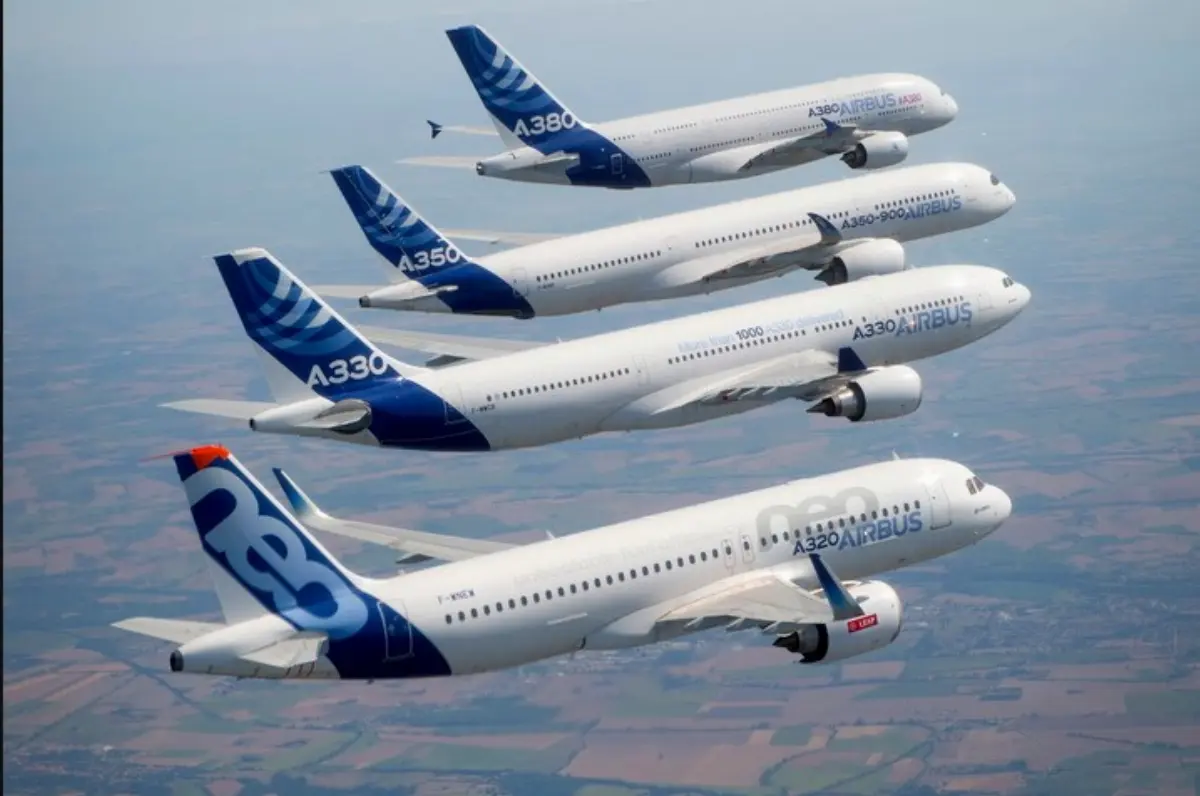
Aircraft. US-Europe trade tensions: Airbus assesses impact on future plans
Confirmed CEO Guillaume Faury admits uncertainty, but production remains unchanged for now

Concerns remain over tariffs and the impact on demand and the supply chain. Statements made yesterday at the Airbus Annual General Meeting in Amsterdam
At the Annual General Meeting (AGM) held yesterday, April 15, in Amsterdam (see AVIONEWS), Airbus CEO Guillaume Faury expressed the European aerospace giant's concerns about the potential impact of US-imposed or retaliatory tariffs on its business. Faury stressed that the global scenario is "complex and rapidly evolving", explicitly mentioning China's decision to block Boeing deliveries to Chinese carriers (see AVIONEWS) as an element of further uncertainty. "The trade war represents a new risk for Airbus, the size and speed of which are still being assessed", the CEO told shareholders, as reported by sources close to the company. Despite this uncertainty, Airbus does not currently foresee changes to its production increase plans. The goal of reaching a monthly production of 75 A-320neo family aircraft by 2027 and 14 A-220s in 2026 remains confirmed.
The head of the European giant clarified that "customs duties are import charges, borne by those who import, therefore our customers". However, the company is in close contact with the airlines to jointly analyze possible strategies for managing this situation, underlining the need to "understand the nature of the tariffs". Airbus in fact imports components to the United States for its final assembly lines in Mobile, Alabama: despite being a European manufacturer, it is therefore in some cases potentially subject to possible countermeasures on duties to America. Among the possible mitigation actions, Faury mentioned the possibility of "modifying the destinations of the deliveries", carefully evaluating "what we deliver to whom and when".
The concerns expressed at the AGM are not isolated in the air transport panorama. In recent weeks, leading figures in the sector had already expressed similar fears. For example, the number one of Delta Air Lines, Ed Bastian, had clearly indicated his unavailability to receive aircraft burdened by possible duties. A similar echo had come from Europe, through the words of Ryanair CEO, Michael O'Leary, whose group is a significant Boeing customer, who had raised the possibility of postponing deliveries of -737/8s if they were affected by European tariff countermeasures. In response to this climate of uncertainty, several air carriers are reportedly internally analyzing possible countermeasures. Among these, Lufthansa is reportedly considering the option of registering the new Boeing -787s arriving in Switzerland with the aim of evading potential tariffs imposed by the EU on the American manufacturer's aircraft.
In parallel with trade tensions, Airbus management reiterated that supply chain issues remain the main challenge for the commercial aircraft division. One critical point is the significant delays in the supply of CFM International Leap 1A engines. Faury himself admitted that between 25 and 30 A-320neo family aircraft are currently blocked waiting for the engines. However, management is optimistic that this figure will be significantly reduced in the second half of the current year, with the aim of minimising the number of complete but non-operational aircraft by the end of 2025. In this regard, a precedent was recalled in 2018, when delays in deliveries of Pratt & Whitney PW1100G engines temporarily blocked around a hundred aircraft, then almost all of which were delivered by the end of the year.
On the corporate strategy front, Airbus CFO Thomas Toepfer said the acquisition of Spirit AeroSystems’ Airbus work share is expected to close by the end of May, with a potential closing date of July 1. Spirit AeroSystems plays a key role in the production of wings and the center fuselage section for the A-220, as well as manufacturing key components for the A-350.
Looking ahead, Airbus reiterated plans to develop a successor to the A-320neo family, scheduled for market introduction in the second half of the next decade. The new aircraft aims to reduce fuel consumption by 25-30%, mainly through a lighter structure, new-generation engines and the use of longer, foldable wings. The CEO also touched on “lesser-known” improvement projects for long-haul aircraft, also focused on increasing efficiency and the use of sustainable aviation fuels.
AVIONEWS - World Aeronautical Press Agency